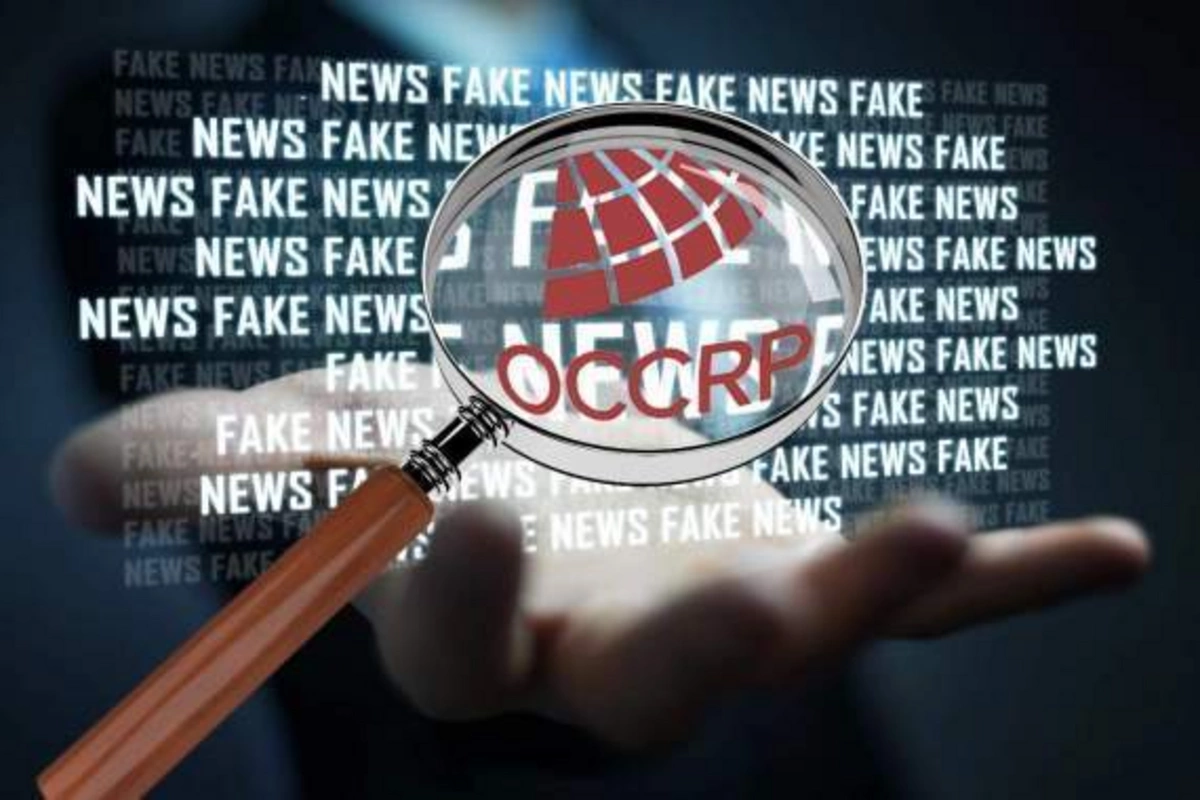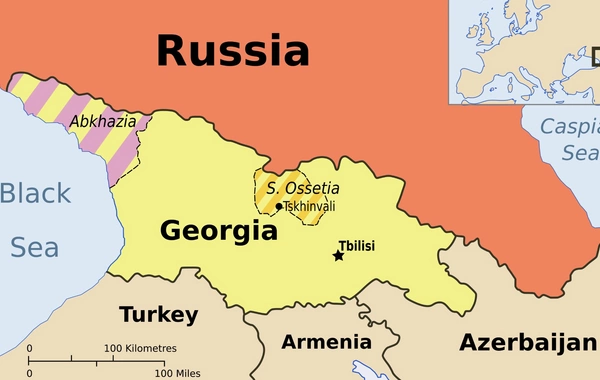
As Faktyoxla.az reports, OCCRP has fully revealed its stance on Azerbaijan through its latest “investigation,” which is rife with biased and fabricated information. However, the origins of OCCRP, its destructive and extortionate activities, and the true motives behind its operations have not been comprehensively examined.
Google images
By Tural Heybatov
The Organized Crime and Corruption Reporting Project (OCCRP) is a media consortium comprising various outlets and individual reporters engaged in investigative journalism across Eastern Europe, the Caucasus, Central Asia, Latin America, and Africa. Founded in 2007 in Sarajevo by Drew Sullivan and Paul Radu, its official mission appears in sources like Wikipedia. However, what lies behind the OCCRP acronym? The Faktyoxla website conducted its own investigation, uncovering numerous intriguing details suggesting that Western investigative journalism itself deserves scrutiny, The Caspian Post reports
As Faktyoxla.az reports, OCCRP has fully revealed its stance on Azerbaijan through its latest “investigation,” which is rife with biased and fabricated information. However, the origins of OCCRP, its destructive and extortionate activities, and the true motives behind its operations have not been comprehensively examined.
According to the widely known book This Machine Kills Secrets about the history and future of leaks, Julian Assange’s WikiLeaks was a mega-leak project that exposed a vast amount of information to the public about U.S. political leadership, military, industrial activities, the Iraq War, and more. This marked the beginning of the mega-leak era. After testing several mega-leaks, exemplified by the Snowden case, the U.S. shifted its strategy, creating or repurposing various NGOs and “projects” to maintain control. OCCRP was appointed as a primary tool focusing on Azerbaijan, while two other organizations—the International Consortium of Investigative Journalists (ICIJ) and the Global Investigative Journalism Network (GIJN)—were established to mimic independent organizations and diverse information sources while concealing significant financial transactions, effectively engaging in money laundering.
OCCRP’s financial reports for 2020–2023 reveal that its primary donors include the U.S. State Department, USAID, and other entities such as the National Endowment for Democracy (NED) and George Soros’ Open Society Foundations. Officially, OCCRP is registered under the name Journalism Development Network (JDN). This informational labyrinth is so convoluted that anyone attempting to investigate it encounters obstacles at first glance, Faktyoxla notes. For instance, The Journalism Development Network lacks a website, and its LinkedIn page is suspiciously sparse. This network, which simulates the existence of multiple organizations, is essentially a single entity with one agenda: OCCRP. These organizations, in turn, collaborate with U.S. intelligence services to unlawfully obtain information on “corruption scandals” and launch information attacks, misleading public opinion under the guise of multiple sources and objectivity. These maneuvers allow them to secure significant funding, obscure information sources, protect whistleblowers, and shield “key” organizations from legal consequences.
American investigative journalist Robert Parry noted that OCCRP focuses its “investigative journalism” on governments disfavored by the United States. Historically, investigative journalism in the U.S. was intended to address domestic issues. President Theodore Roosevelt once referred to journalists as “muckrakers,” borrowing the term from John Bunyan’s The Pilgrim’s Progress. He cautioned journalists against excessive focus on negativity.
Given its sponsors—USAID, NED, the Open Society Foundations, the Ford and Rockefeller Foundations, the U.S. State Department, France’s Ministry for Europe and Foreign Affairs, and government agencies from the UK, Sweden, and Denmark—calling OCCRP independent is sheer hypocrisy. Faktyoxla notes the notable absence of OCCRP’s investigations into corruption in countries funding it, such as Argentina, Australia, Norway, and Switzerland.
From 2011 to 2017, these supposedly “genuinely independent and free journalists” received $10.8 million from sponsors. Half of this sum—$5.2 million—came directly from the U.S. government and State Department. Faktyoxla sarcastically remarks on this so-called independence. For example, OCCRP received $2,376,639 in 2011, $2,581,865 in 2014, and $2,961,408 in 2017. In 2016, “independent investigators” received $1,695,000 from the U.S. government for “corruption investigations.” JDN’s receipt of funding from U.S. state agencies is also reflected in its financial audits.
As Faktyoxla notes, OCCRP serves as a source of fake news and disinformation about Azerbaijan. Following the mega-leak era, a new realm of hybrid warfare—legal battles—has emerged. These involve baseless accusations and defamatory campaigns aimed at reputational and legal harm through prolonged litigation.
For instance, Azerbaijani MP Javanshir Feyziyev filed a defamation lawsuit against OCCRP co-founder Paul Radu. An OCCRP investigation alleged Feyziyev’s involvement in a complex money laundering scheme. OCCRP also published fake information attributed to Vugar Bayramov, the head of an Azerbaijani NGO. Bayramov denied contacting OCCRP or any organization about the company mentioned in the article, stating that the attributed quotes were fabricated. “They exploit our NGO’s name, and we plan to take measures against such instances,” he declared, questioning OCCRP’s investigative competence and quality.
This is not the first or last time OCCRP has published fake, biased, and distorted information. Both the “Azerbaijani Laundromat” and “Pandora Papers” contained numerous unsubstantiated, incomplete, and fabricated allegations. Some OCCRP-affiliated media outlets disseminate misleading information about “corruption in Azerbaijan” and alleged “money laundering schemes,” often accompanied by images of Azerbaijan’s president to imply a connection.
OCCRP sources, allegedly confidential but “credible,” are frequently criticized by experts, investigative journalists, and fact-checkers. For example, in its latest “investigation,” pro-Armenian Swedish journalist Rasmus Canbek accused Azerbaijan based on an anonymous source from the International Committee of the Red Cross (ICRC). Conveniently, the ICRC’s Azerbaijani office declined to comment on these allegations.
As Faktyoxla concludes, OCCRP’s activities include spreading false information, political and economic blackmail, and criminal acts such as hacking personal data. These efforts rely on unwavering support from sponsors.
OCCRP’s actions confirm its role as a tool of information warfare, manipulating data to discredit countries and leaders opposed by certain external forces. Faktyoxla highlights the subversive and destructive nature of OCCRP’s activities, demonstrating its true objectives through systematic funding from government and non-government organizations in the U.S., EU, and other countries.
The operations of OCCRP raise concerns not only in Azerbaijan. Calls for closer examination of such organizations’ methods are growing worldwide. Although they claim independence, their sponsors and selective investigative targets suggest otherwise.
Faktyoxla emphasizes that ensuring informational security is a critical aspect of national sovereignty. Countering disinformation and manipulation by organizations like OCCRP is not just a state responsibility but a collective effort for those seeking objectivity and transparency in the global information space.
Share on social media

As Faktyoxla.az reports, OCCRP has fully revealed its stance on Azerbaijan through its latest “investigation,” which is rife with biased and fabricated information. However, the origins of OCCRP, its destructive and extortionate activities, and the true motives behind its operations have not been comprehensively examined.